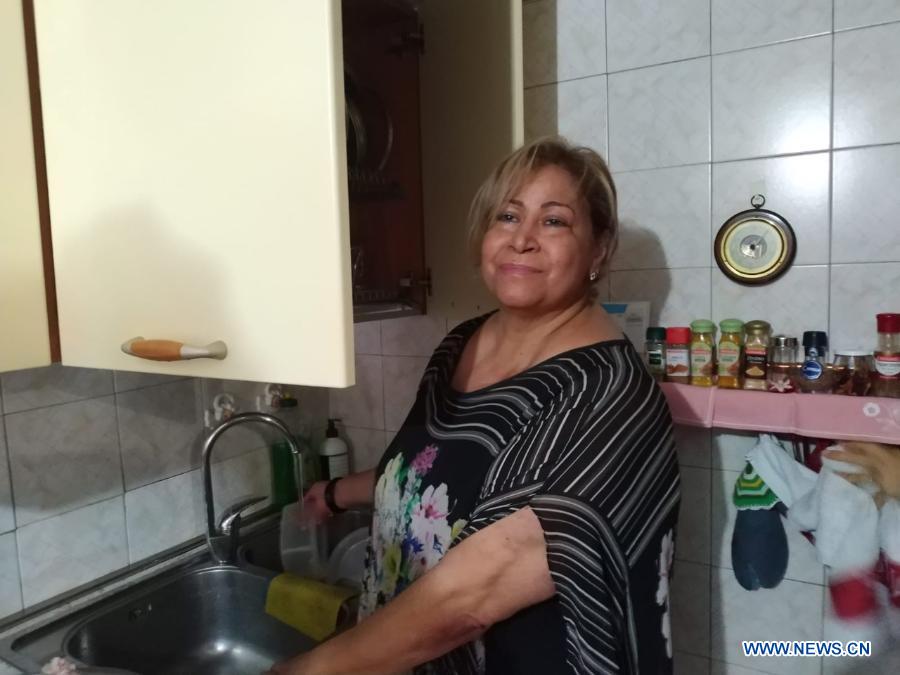
File photo taken in 2019 shows Samar Sinjab in the kitchen of her home in Mira, near Venice, in Italy. Samar Sinjab, a physician in the northern Italian region of Veneto, remained concerned about the condition of her coronavirus patients even when she herself had contracted the virus. TO GO WITH "Feature: Immigrant doctor in Italy loses mother to COVID-19, continues battle against virus" (Photo by Rafi El Mazloum/Xinhua)
ROME, Nov. 30 (Xinhua) -- Samar Sinjab, a physician in the northern Italian region of Veneto, remained concerned about the condition of her coronavirus patients even when she herself had contracted the virus.
Sinjab, a 62-year-old migrant from Syria, was infected with COVID-19 in the early days of Italy's first wave of the pandemic. She died a month later.
"The last thing she said to me before going into isolation was that I should not tell her patients she was sick with the virus," Rafi El Mazloum, Sinjab's son, recalled.
Sinjab never left the hospital again, but she feared news of her infection might make patients feel overly vulnerable. "She didn't want them to worry," El Mazloum said.
Sinjab was admitted to hospital on March 7, four days before Italy became the first country in Europe to order a nationwide coronavirus lockdown. Back then, hospitals did not have adequate personal protective equipment and it was not yet clear how easily the virus could pass from one person to another. When Sinjab died on April 9, she became the 100th doctor in Italy to fall victim to COVID-19.
That total has more than doubled since then. As of Nov. 30, the pandemic had claimed the lives of 222 physicians in Italy.
In the months since Sinjab's death, El Mazloum, who was taken to Italy from Syria as an infant, has not had a single day off, as he took over his mother's practice taking care of around 1,500 patients. The busy schedule also meant that he had no time to properly mourn his mother's passing.
"There's always something to do and patients to take care of," El Mazloum told Xinhua. "I miss her every time I think about her, but I haven't had the time to process the fact that she's gone. But I can say I wouldn't be here if it weren't for her. Not just because she was my mother but because she is the one who taught me how to be a doctor."
El Mazloum, 35, considers himself "an old-time family doctor" -- someone who knows his patients' stories and has a personal rapport with them. It's the way his mother taught him. He said this makes a medical crisis like the coronavirus look different to him and other frontline medical workers than it does to most people.
"In a way, I am on call 24 hours a day, seven days a week," El Mazloum said. "I don't have a phone for work and another for personal use. I only have one phone. Patients know they can call whenever there's an emergency."
El Mazloum is proud that even though some of his patients have been infected with the virus, it has not claimed any of their lives.
"You develop an instinct to know who can recover from the virus at home and who needs to go to the hospital, who is doing OK and who needs extra assurances," he said.
How has the twin burden of losing his mother and working as a physician in Italy's battle against the coronavirus impacted El Mazloum's life?
"We all have to do what we can," he said. "I'm under a lot of physical and psychological stress from all this. But I do what I can. I am not fighting the pandemic, I am treating my patients. That's what I'll keep doing until this is all over. Then I'll take some time off." Enditem